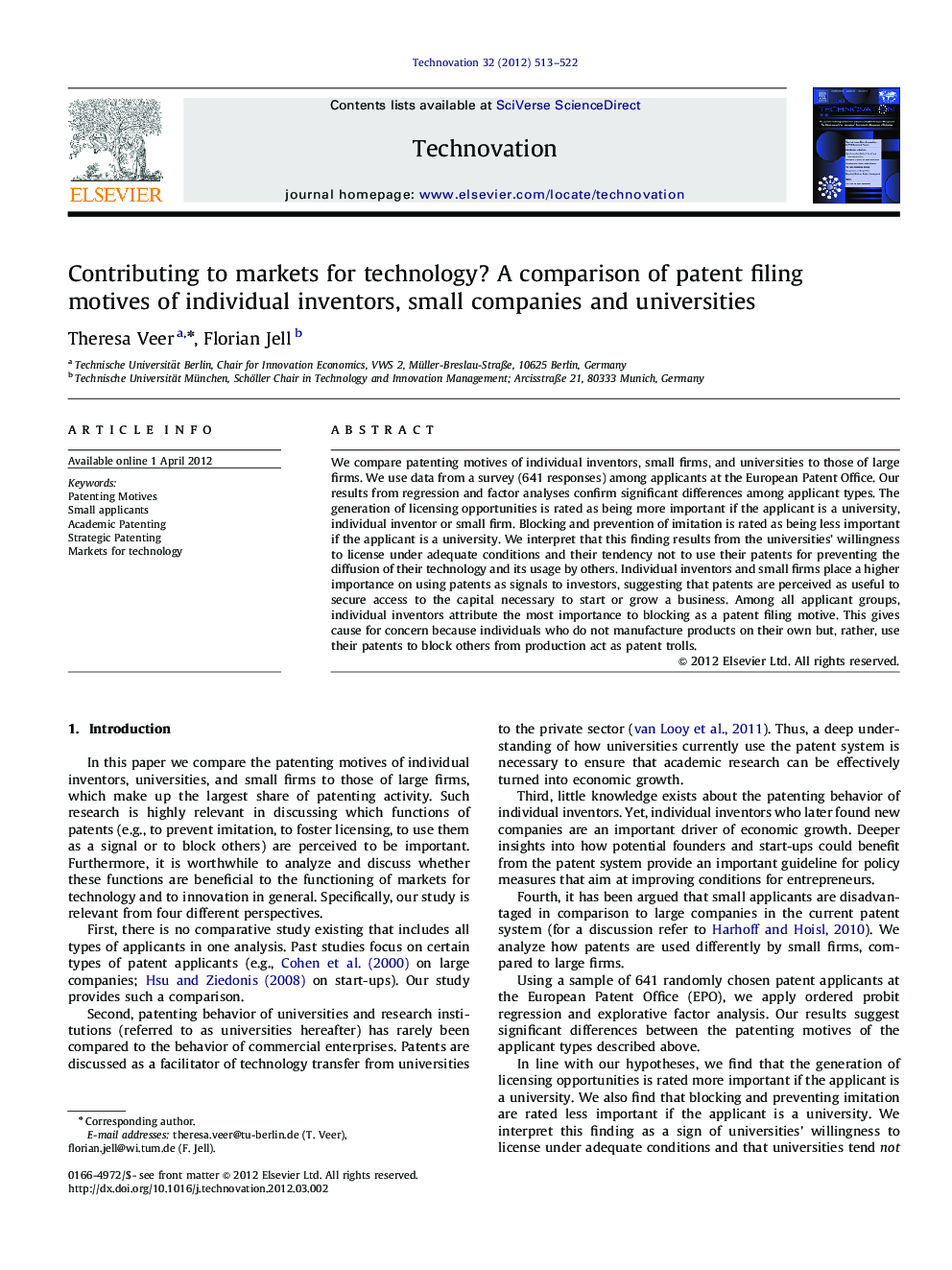| Article ID | Journal | Published Year | Pages | File Type |
|---|---|---|---|---|
| 1022132 | Technovation | 2012 | 10 Pages |
We compare patenting motives of individual inventors, small firms, and universities to those of large firms. We use data from a survey (641 responses) among applicants at the European Patent Office. Our results from regression and factor analyses confirm significant differences among applicant types. The generation of licensing opportunities is rated as being more important if the applicant is a university, individual inventor or small firm. Blocking and prevention of imitation is rated as being less important if the applicant is a university. We interpret that this finding results from the universities' willingness to license under adequate conditions and their tendency not to use their patents for preventing the diffusion of their technology and its usage by others. Individual inventors and small firms place a higher importance on using patents as signals to investors, suggesting that patents are perceived as useful to secure access to the capital necessary to start or grow a business. Among all applicant groups, individual inventors attribute the most importance to blocking as a patent filing motive. This gives cause for concern because individuals who do not manufacture products on their own but, rather, use their patents to block others from production act as patent trolls.
► Analysis of patenting motives of individual inventors, universities, and small firms. ► Significant differences in patent filing motives compared to large firms. ► Universities patent to license, not to block; this fosters markets for technology. ► Small companies patent to attract investors and to license. ► Single inventors license and block: problematic if leading to patent troll behavior.
